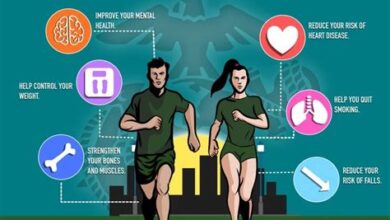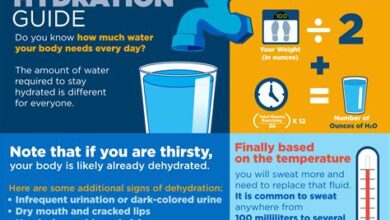Importance of Regular Health Screenings and Check-ups

Learn about preventive health measures, early detection of silent diseases, monitoring chronic conditions, promoting overall well-being, and reducing healthcare costs. Improve your health today!Regular health screenings and check-ups play a crucial role in maintaining our overall well-being and preventing potential health issues. In this blog post, we’ll explore the various aspects of the importance of scheduling and attending regular health screenings and check-ups. From preventive health measures to early detection of silent diseases, monitoring chronic conditions, and promoting overall well-being, these routine medical appointments can have a significant impact on our health.
Through regular screenings and check-ups, individuals can take preventive measures to minimize their risk of developing certain health conditions. Additionally, early detection of silent diseases can lead to better treatment outcomes and improved prognosis. Monitoring chronic conditions through regular check-ups also allows for timely adjustments to treatment plans. Moreover, by prioritizing these appointments, individuals can promote their overall well-being and potentially reduce healthcare costs in the long run. Join us as we delve deeper into the importance of regular health screenings and check-ups.
Preventive health measures
Regular health screenings and check-ups are vital preventive health measures that can help identify potential health issues before they become serious problems. By regularly monitoring key health indicators such as blood pressure, cholesterol levels, and blood sugar, individuals can take proactive steps to prevent the development of chronic conditions such as heart disease, diabetes, and hypertension.
Additionally, routine check-ups with healthcare professionals provide an opportunity for personalized health education and lifestyle counseling. This can empower individuals to make more informed decisions about their health and implement healthy behaviors that can reduce the risk of developing lifestyle-related diseases.
Overall, prioritizing preventive health measures through regular screenings and check-ups can lead to improved health outcomes and a higher quality of life, while also helping to reduce the burden of healthcare costs associated with managing preventable chronic diseases.
Early detection of silent diseases
Early detection of silent diseases is crucial in ensuring timely treatment and a better prognosis for patients. Many life-threatening diseases, such as diabetes, high blood pressure, and certain types of cancer, often do not exhibit obvious symptoms in their early stages. Regular health screenings and check-ups play a crucial role in identifying these silent diseases before they progress to advanced stages and cause serious health complications. By detecting these diseases early, individuals can receive timely medical intervention and prevent the development of life-threatening complications.
Furthermore, early detection of silent diseases can significantly reduce healthcare costs in the long run. By identifying and treating these diseases in their early stages, individuals can avoid the need for costly medical procedures and long-term management of advanced diseases. This not only benefits the individual’s health and well-being but also eases the financial burden on the healthcare system as a whole.
In conclusion, early detection of silent diseases through regular health screenings and check-ups is imperative for maintaining optimal health and well-being. By staying proactive about monitoring one’s health and seeking regular medical evaluations, individuals can identify potential health concerns early on and take the necessary steps to prevent the progression of silent diseases. This proactive approach not only leads to better health outcomes but also contributes to reducing healthcare costs and burden on the healthcare system.
Monitoring of chronic conditions
Regular monitoring of chronic conditions is essential for maintaining long-term health and well-being. Chronic conditions such as diabetes, hypertension, and asthma require continuous management to prevent complications and ensure the effectiveness of treatment. Patients with chronic conditions should schedule regular check-ups with their healthcare provider to assess the status of their condition and make any necessary adjustments to their treatment plan.
During these check-ups, healthcare professionals can conduct various tests and screenings to monitor the progression of the chronic condition and assess the impact of treatment. For example, blood tests can provide valuable information about blood sugar levels for patients with diabetes, while lung function tests can help evaluate the respiratory health of individuals with asthma. By monitoring these key indicators, healthcare providers can detect any changes or developments in the chronic condition and take proactive measures to prevent further complications.
In addition to medical tests, regular check-ups also allow patients to discuss any symptoms or concerns they may have related to their chronic condition. This open communication between the patient and healthcare provider is vital for identifying potential issues and addressing them promptly. By keeping a close eye on the status of chronic conditions through regular monitoring and check-ups, individuals can proactively manage their health and minimize the risk of long-term complications.
Promotion of overall well-being
When it comes to promoting overall well-being, regular health screenings and check-ups play a crucial role in ensuring a healthy and balanced lifestyle. By staying proactive and keeping up with routine medical examinations, individuals can take control of their health and address any potential concerns before they escalate into serious issues.
Addressing physical, mental, and emotional well-being is essential for leading a fulfilling life. Regular health screenings not only help in identifying potential risk factors for diseases, but they also provide an opportunity for healthcare professionals to offer guidance on maintaining a healthy lifestyle. This includes advice on nutrition, exercise, stress management, and mental health support, all of which contribute to overall well-being.
Furthermore, regular health check-ups can aid in the early detection and management of chronic conditions, allowing individuals to receive timely treatment and support. By taking proactive measures in caring for one’s health, individuals can reduce the risk of developing serious health issues, ultimately promoting a higher quality of life and overall well-being.
Reducing healthcare costs
Regular health screenings and check-ups play a crucial role in reducing healthcare costs by identifying potential health issues early on. By catching illnesses or conditions in their early stages, individuals can avoid more costly treatment or hospitalization down the line. For example, discovering and treating high blood pressure or diabetes early can prevent the need for more extensive and expensive interventions later on.
Additionally, regular screenings and check-ups can help individuals adopt healthy behaviors and lifestyles, ultimately reducing healthcare costs in the long run. By promoting prevention and proactive measures, individuals can avoid the need for costly medical treatment and interventions that may arise from neglecting their health.
Overall, prioritizing regular health screenings and check-ups can result in substantial cost savings for both individuals and the healthcare system as a whole. By addressing potential health issues early and promoting healthy habits, individuals can reduce their reliance on costly medical treatments and contribute to reducing healthcare costs on a broader scale.





